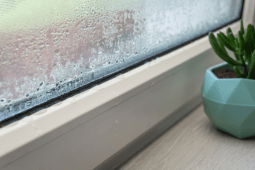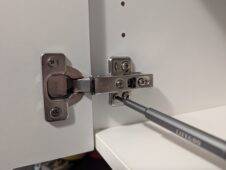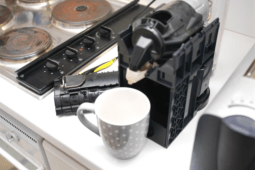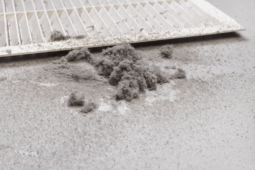Types of Kitchen Counters: Explore The Best Options
Kitchen countertops are one of the most important components of any kitchen. Not only do they add aesthetic value to the space, but they also serve as the workhorse of the kitchen, providing a durable surface for meal preparation, cooking, and baking.
With so many different types of kitchen countertops available on the market, it can be overwhelming to choose the right one for your needs. In this article, we will explore the pros and cons of various kitchen countertop materials, including their durability, maintenance requirements, and overall design aesthetics.
Making the Right Choice
Choosing the right type of kitchen counter can make a big difference in the overall look and functionality of your kitchen. There are many options to choose from, including granite, marble, quartz, and laminate, each with its own set of pros and cons.
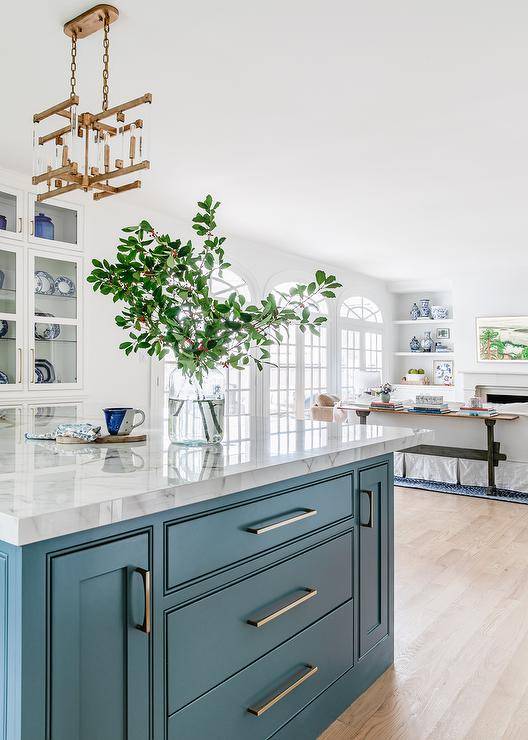
First and foremost, the right kitchen counter can enhance the aesthetic value of your kitchen. If you have a particular color or design scheme in mind, you can choose a counter that complements it perfectly. For example, if you have a modern kitchen with stainless steel appliances, a sleek quartz counter would be a great choice. On the other hand, if you have a more traditional kitchen, a natural stone like granite or marble might be a better fit.
In addition to aesthetics, the right kitchen counter can also improve functionality. If you do a lot of cooking or baking, you may want to choose a counter that is heat-resistant and easy to clean, like quartz or granite. If you have young children, you may want to choose a counter that is scratch-resistant and durable, like solid surface or laminate.
The right kitchen counter can also add value to your home. If you are planning on selling your home in the future, a high-quality kitchen counter can be a major selling point. Many homebuyers are willing to pay more for a home with a beautiful, functional kitchen, so choosing the right counter can be a smart investment.
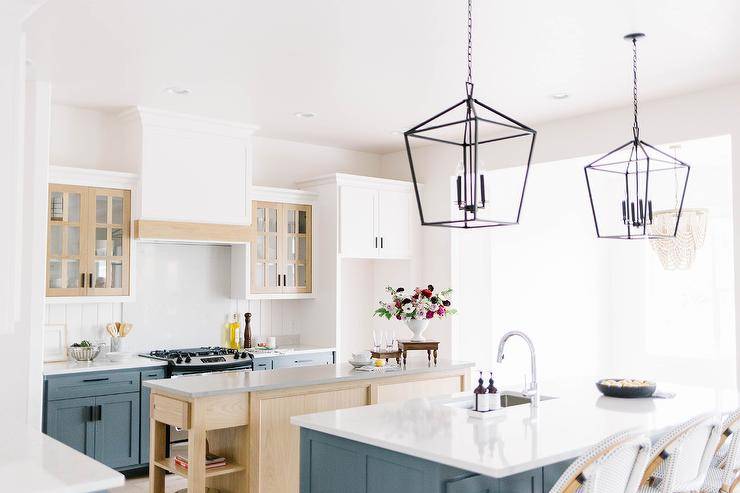
Choosing the right type of kitchen counter is important for a variety of reasons. From enhancing the aesthetic value of your kitchen to improving functionality and adding value to your home, the right counter can make a big difference in your daily life. So, if you are planning a kitchen renovation or simply looking to update your counters, take the time to research your options and choose the one that best fits your needs and budget.
Different Materials
Granite Countertops:
Granite countertops are a popular choice for homeowners due to their durability and natural beauty. They are available in a wide range of colors and patterns, making them a versatile option for any kitchen design. Additionally, granite is heat-resistant and can withstand scratches and chips.
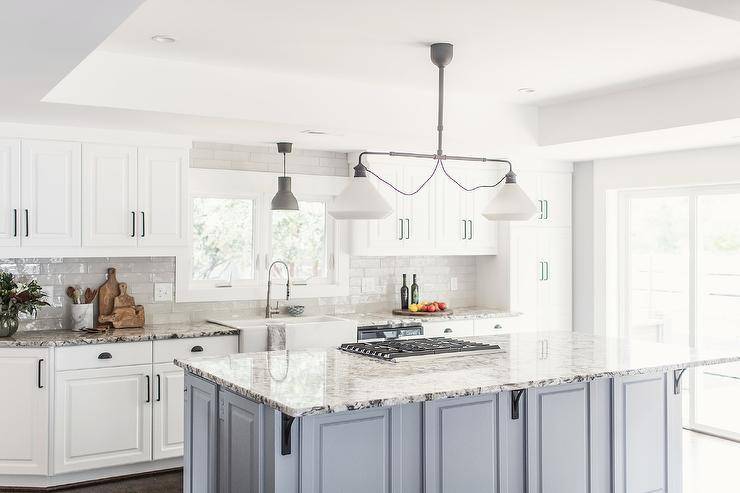
However, one potential disadvantage of using granite countertops is that they require regular maintenance, including sealing and cleaning. They can also be quite expensive compared to other countertop materials.
Quartz Countertops:
Quartz countertops are a low-maintenance option that is resistant to scratches, stains, and heat. They come in a variety of colors and patterns, many of which mimic the look of natural stone. Additionally, quartz countertops do not require sealing like granite or marble.
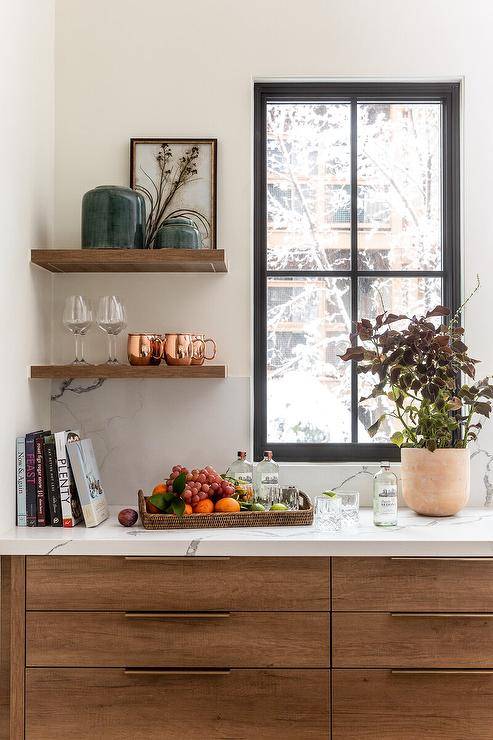
One potential disadvantage of using quartz countertops is that they are not as heat-resistant as other materials. They can also be quite expensive compared to other countertop options.
Marble Countertops:
Marble countertops are known for their luxurious appearance and unique veining patterns. They are a timeless option that adds elegance to any kitchen. Marble is heat-resistant, making it a great option for avid cooks.
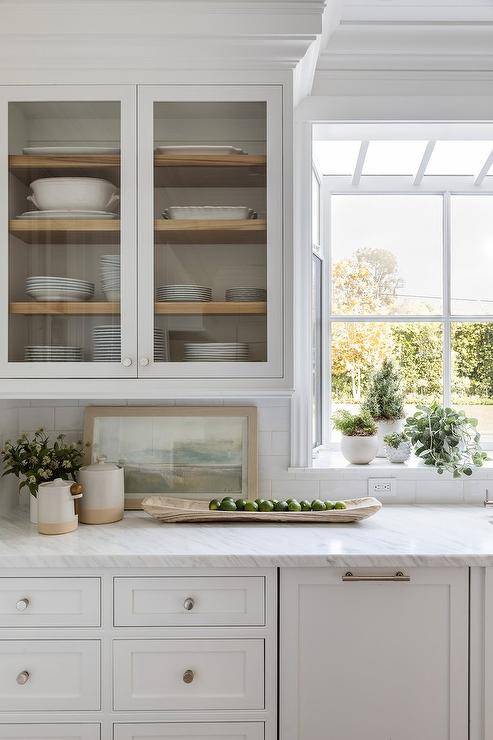
However, marble is a porous material and requires regular sealing to prevent staining. It is also prone to scratches and chips, making it less durable than other materials. Marble countertops can also be quite expensive compared to other countertop options.
Butcher Block Countertops:
Butcher block countertops are a rustic and warm option for any kitchen design. They are made from wood and add warmth and texture to your space. Butcher block is also a great surface for food preparation, as it is easy on knives.
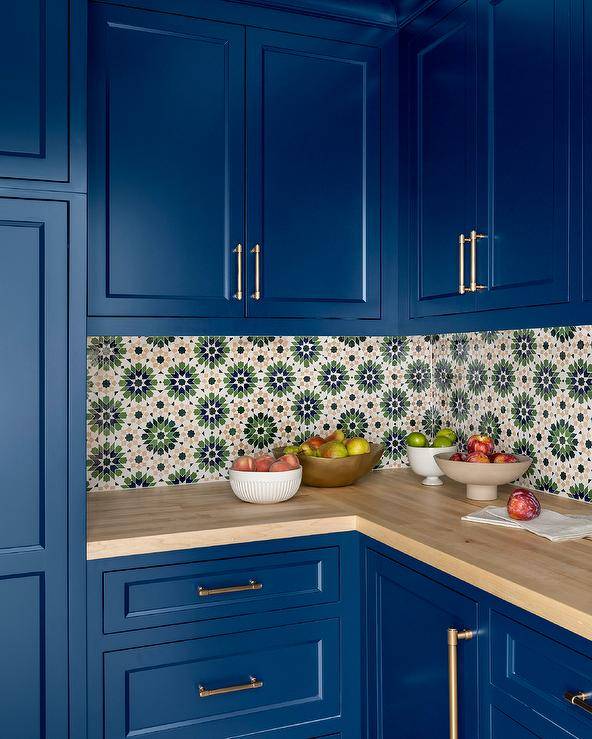
One potential disadvantage of using butcher block countertops is that they require regular maintenance, including oiling and sanding. They are also prone to scratches and stains, making them less durable than other materials.
Purchasing Tips
Selecting the right type of kitchen countertop for your needs and preferences is crucial since it can affect the functionality and aesthetic of your kitchen. Here are some tips to help you choose the right type of kitchen countertop:
- Consider your lifestyle and cooking habits. If you cook frequently and use sharp knives, you may want a durable and scratch-resistant material like granite or quartz. If you have young children who spill often, you may want an easy-to-clean and stain-resistant material like laminate or solid surface.
- Determine your budget. Kitchen countertops vary in price, so it’s essential to determine how much you’re willing to spend before making a decision. Natural stone and quartz are typically more expensive than laminate or solid surface.
- Choose a color and style that complements your kitchen’s design. If you have a modern kitchen, you may want a sleek and minimalist countertop, while a traditional kitchen may look better with a more ornate countertop.
- Research and compare different materials. Each material has its own pros and cons, so it’s essential to research and compare the durability, maintenance, and appearance of each type of countertop.
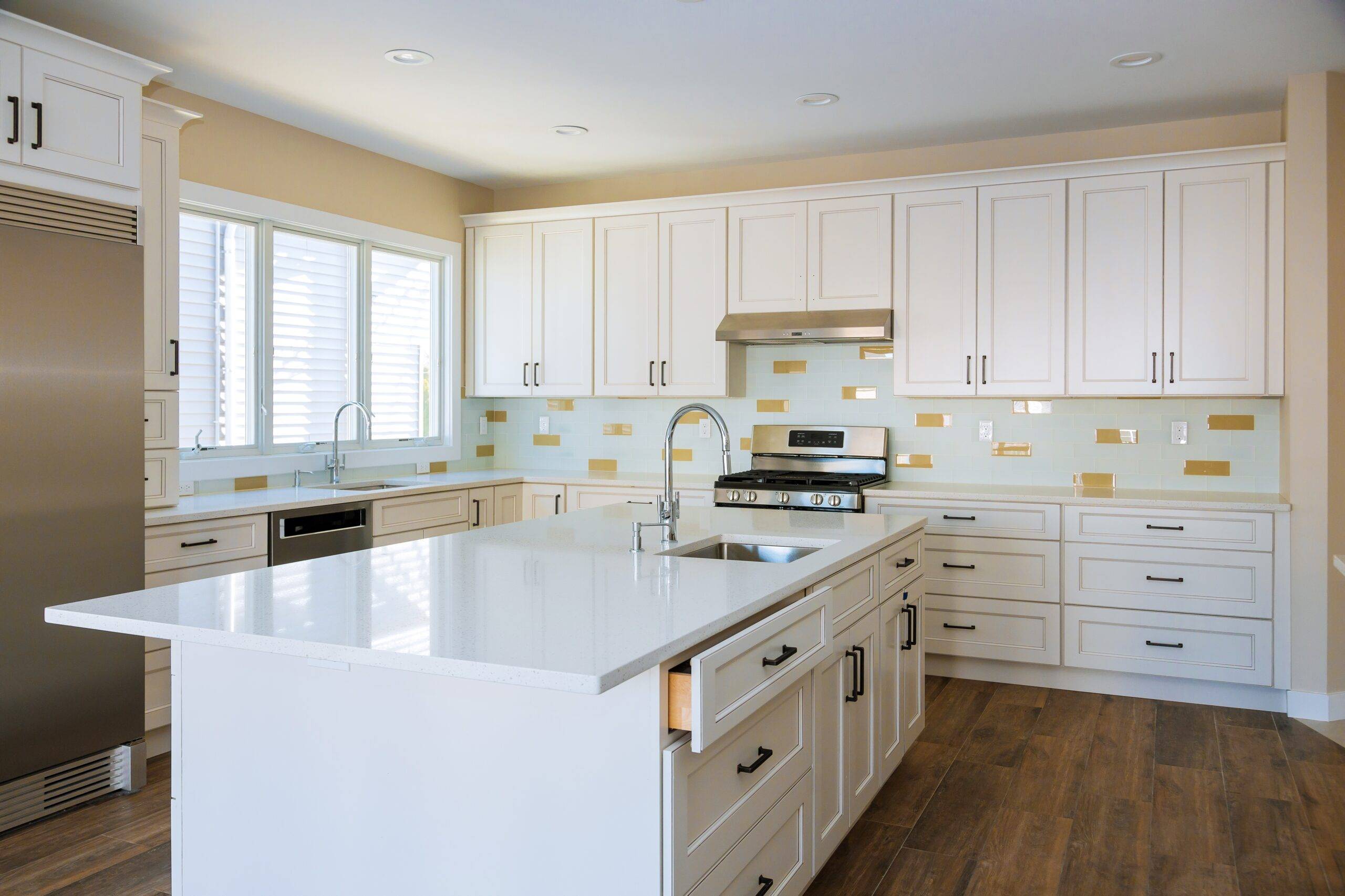
Choosing the right type of kitchen countertop depends on your personal preference and needs. Granite, quartz, marble, and butcher block countertops all have their advantages and disadvantages. Consider factors such as durability, maintenance, and cost when making your decision. Ultimately, choosing the right kitchen countertop will enhance the overall look and feel of your kitchen and make your daily cooking routine more enjoyable.
Best DIY Install Option
If you’re looking to replace your kitchen countertop and want to save some money, installing it yourself is a great option. But with so many different types of countertops available, it’s important to find one that is relatively easy to install. The easiest type of kitchen countertop to install yourself is a laminate countertop.
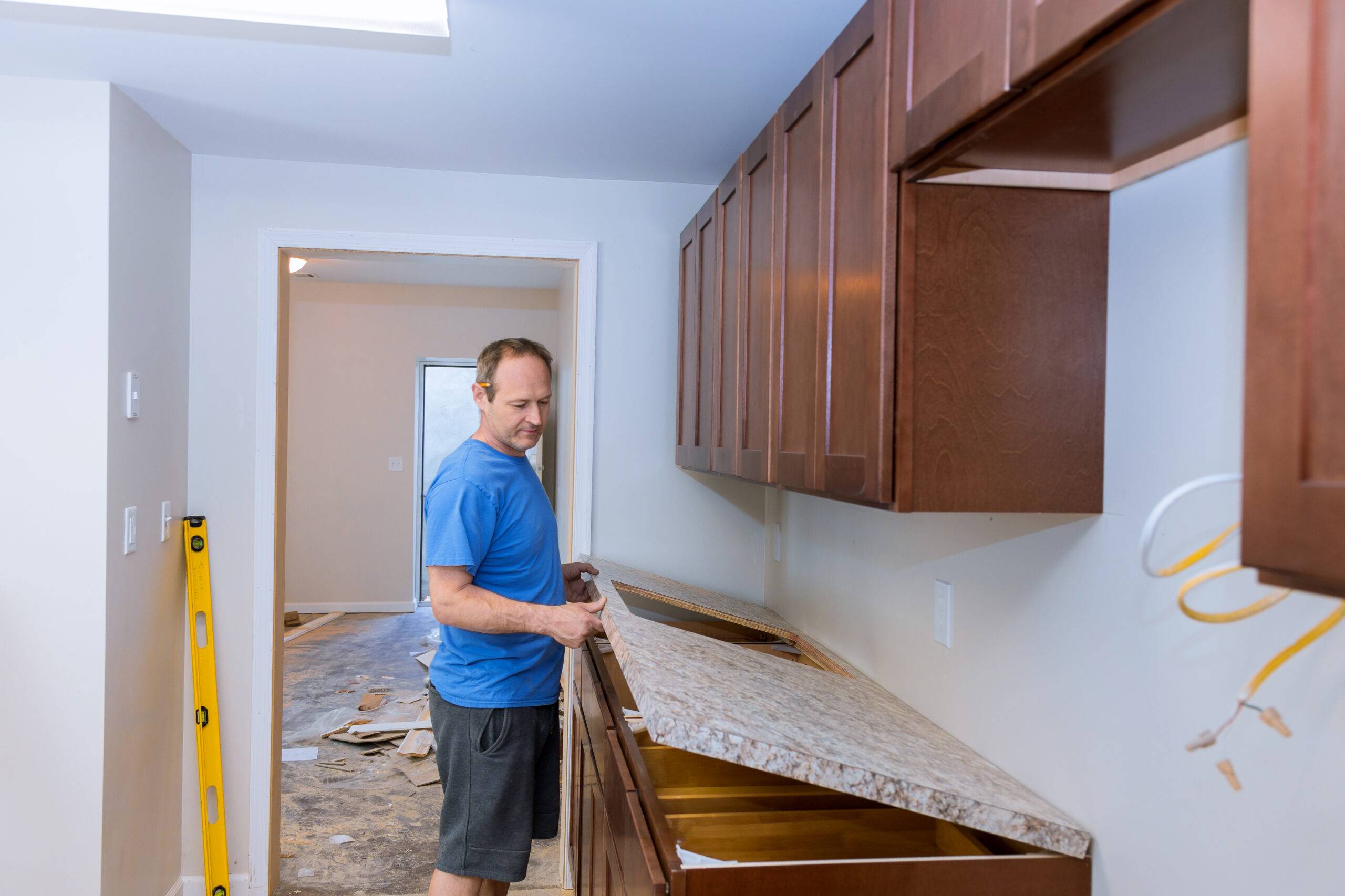
Laminate countertops are made of a thin layer of plastic laminate material that is glued to a plywood or particleboard base. They are lightweight and easy to handle, making them a great choice for DIY installation. Also, laminate countertops come in a wide range of colors, patterns, and textures, so you can easily find one that matches your kitchen décor.
To install a laminate countertop, you’ll need to measure your existing countertop and order a custom-sized piece from your local home improvement store. Once you have your countertop, you’ll need to remove the old countertop and prepare the base by sanding it down and smoothing out any rough spots.
Next, you’ll need to apply a layer of contact cement to both the base and the bottom of the countertop. Once the cement has dried, you can carefully place the countertop onto the base, making sure it is lined up correctly. Then, use a rolling pin to apply pressure to the entire surface of the countertop, ensuring that it adheres firmly to the base.
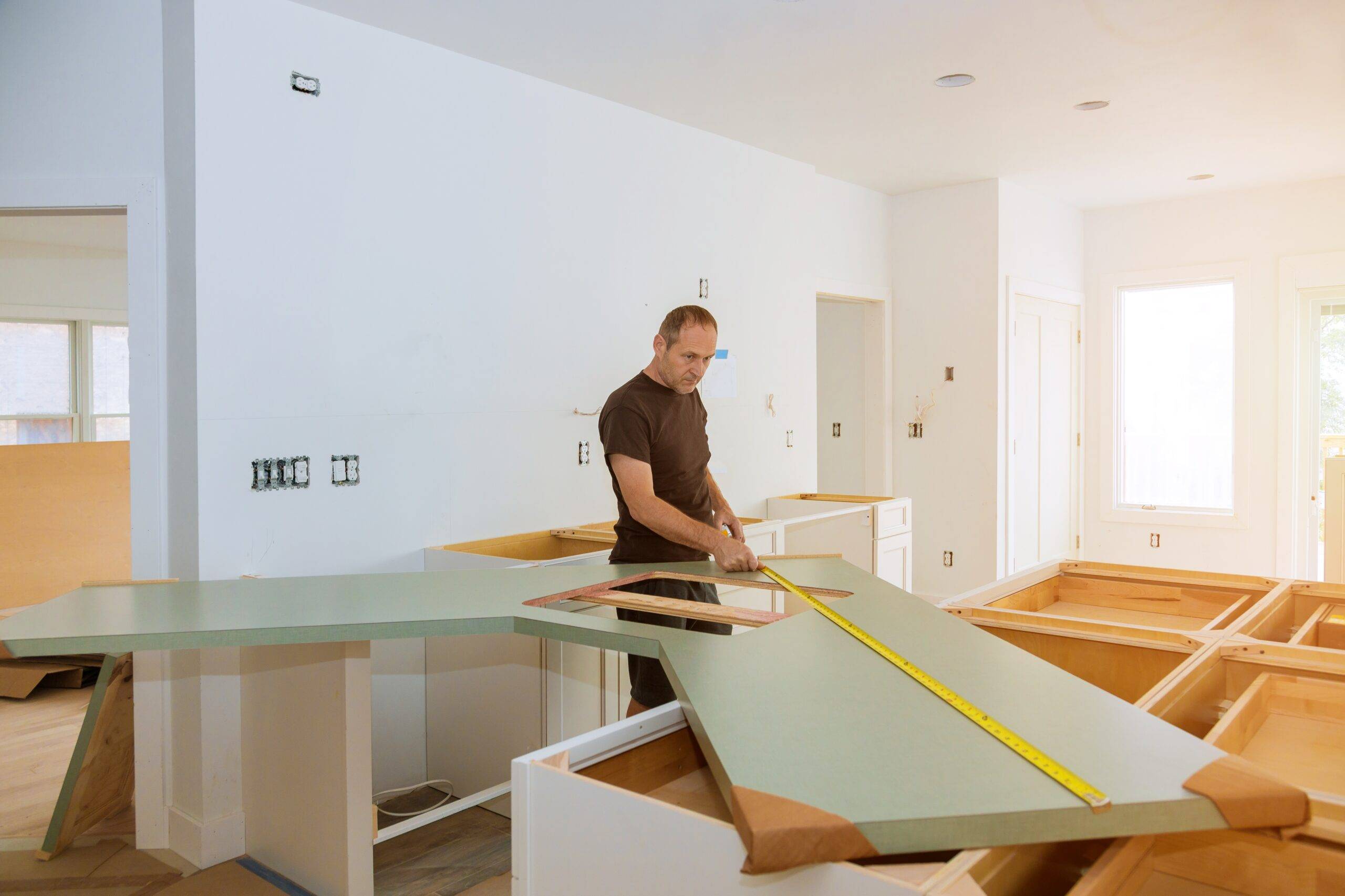
Finally, you’ll need to trim the edges of the countertop to fit your kitchen’s dimensions using a router or a saw. This step requires some precision, but with a little practice, you can achieve a professional-looking finish.
Overall, laminate countertops are a great option for those looking for an easy DIY project. With a little patience and attention to detail, you can install a beautiful new countertop that will last for years to come.
Frequently Asked Questions (FAQs)
What are the most popular types of kitchen countertops?
The most popular types of kitchen countertops are granite, quartz, marble, laminate, and solid surface. Each material has its own unique characteristics and price point, so it’s important to consider your budget and lifestyle when choosing a countertop.
Are granite countertops easy to maintain?
Granite countertops are relatively easy to maintain with regular cleaning and sealing. They are resistant to heat and scratches, but can be susceptible to staining if not properly sealed.
How does quartz compare to granite?
Quartz is similar to granite in terms of durability and resistance to scratches and heat. However, quartz is non-porous and does not require sealing like granite does. It also comes in a wider range of colors and patterns.
Can marble be used in a kitchen?
Marble can be used in a kitchen, but it is more porous and softer than granite or quartz. This means it can be more susceptible to staining and scratches. It’s important to use cutting boards and to clean up spills immediately to prevent damage.
What is the difference between laminate and solid surface countertops?
Laminate countertops are made of layers of paper or fabric that are bonded together with resin and then topped with a decorative layer. Solid surface countertops are made of a composite material that is more durable and scratch-resistant than laminate.
How much do kitchen countertops cost?
The cost of kitchen countertops varies depending on the material, size, and installation. Laminate countertops are the most budget-friendly option, while granite and quartz can be more expensive.
Can I install my own kitchen countertops?
While it is possible to install your own kitchen countertops, it can be a difficult and time-consuming process. It’s often best to hire a professional to ensure that the countertops are installed correctly and securely.

